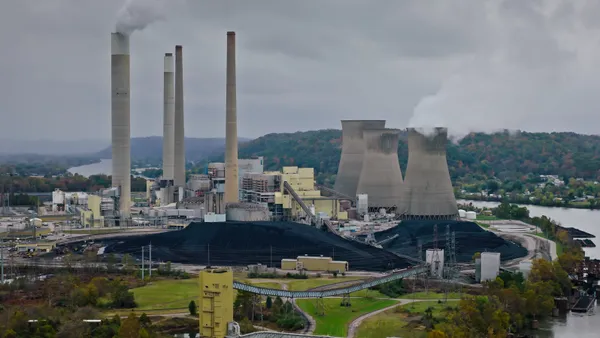Dive Brief:
- The Arizona Corporation Commission will weigh affordability and reliability when considering new utility generating resources, but ESG factors — environmental, social and governance — do not have a role in those deliberations, Chairman Jim O’Connor said in a statement last Friday.
- O’Connor was responding to a call from the Arizona Free Enterprise Club, or AFEC, as well as almost 200 emails to the ACC calling for the rejection of utility integrated resource plans that commit to achieving net zero energy systems by 2050.
- Arizona Public Service and Tucson Electric last month announced plans to add 20 GW of mainly renewables and storage by 2038, and both have plans to eliminate greenhouse gas emissions by mid century. “The commission has really been more of a cheerleader for fossil fuels than even the utilities,” said Sandy Bahr, director of the Sierra Club’s Grand Canyon Chapter.
Dive Insight:
O’Connor’s statement was unequivocal that ESG considerations do not play a role in Arizona utility proceedings, particularly with respect to electricity rate cases.
“I can assure you any utility utilizing or promoting ESG as a determining factor when adopting generation sources would be met with swift pushback from me, and surely the majority of commissioners currently serving,” he said.
O’Connor also said the “war on fossil-fuels” is being driven by the Inflation Reduction Act, which includes billions in incentives for clean energy, as well as power plant emissions regulations proposed by the U.S. Environmental Protection Agency.
“In the face of cheap renewable power courtesy of Washington's generous subsidies ... the least cost power options right now are solar and wind,” O’Connor said. But the ACC “must consider reliability first and foremost,” and will look to add more gas-fired generation alongside battery storage, he said.
O’Connor also encouraged Arizona residents to “engage with those charged in Washington, on Wall Street, and those organizations advising investors, to ensure fossil fuels will continue to play a critical role in the delivery of reliable, affordable power.”
It is unusual for regulators to be so blunt in their support of certain resources, said Sierra Club’s Bahr. “They don't seem concerned that it will look like they are biasing decisions with what they're saying,” she said.
O’Connor’s comments were partially a response to a statement from the Arizona Free Enterprise Club, said a commission spokesperson, as well as emails filed recently in an ACC docket launched in 2020 to examine inclusion, equality, and diversity programs at investor-owned utilities.
Integrated resource plans filed by Arizona IOUs have embraced clean energy solutions and look to end the use of coal-fired generation by 2032.
“These plans will determine the direction of Arizona’s energy future — whether we follow the path of California with sky high rates and rolling blackouts, or we ensure affordable, reliable, and plentiful energy into the future,” AFEC said. “These ESG plans push us down the former, and that’s why the commission must reject them outright to protect ratepayers and ensure just and reasonable rates.”
ACC Commissioner Nick Myers said last month that his office has received over 190 form emails from consumers opposed to ESG considerations in utility cases.
“ESG requires radical environmental goals,” such as eliminating greenhouse gas emissions, an example of the emails said. Those goals “will result in an UNAFFORDABLE and UNRELIABLE grid with rolling blackouts like California. lt's estimated ESG is currently costing ratepayers $6B in Arizona and this cost will rise.”
It is possible that the ACC’s approach could change. The commission comprises five elected seats, and three are up for reelection in 2024: O’Connor and Commissioner Lea Marquez Peterson, both Republicans, and Commissioner Anna Tovar, a Democrat.
The focus on fossil fuels, when solar and wind are cheaper, is “contrary to the corporation commission’s mission,” Bahr said. “If it is cheaper for utilities to consider factors like clean air and climate ... then that’s what they should be doing.”
Neither Arizona Public Service or Tucson Electric Power commented on O’Connor’s ESG statement.














